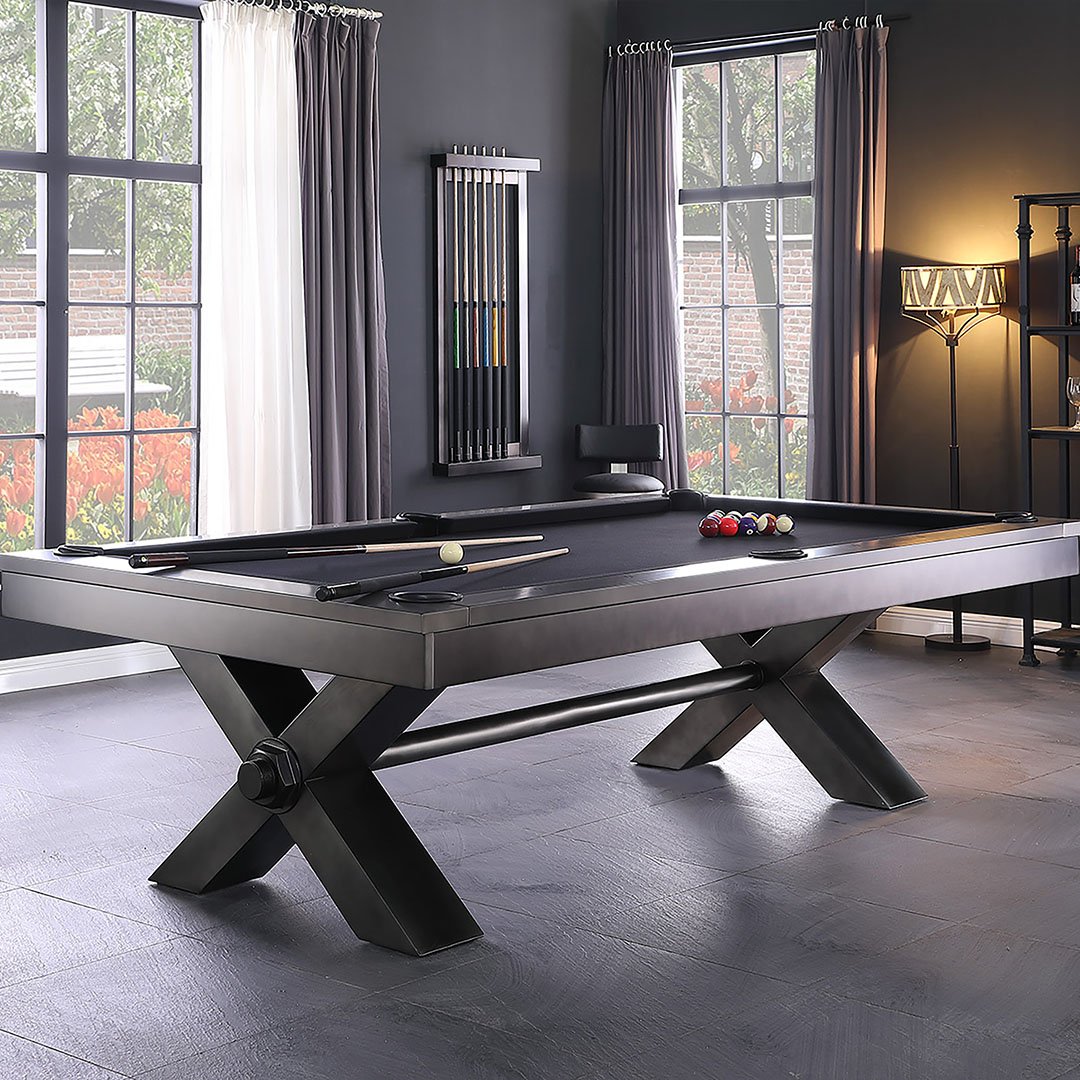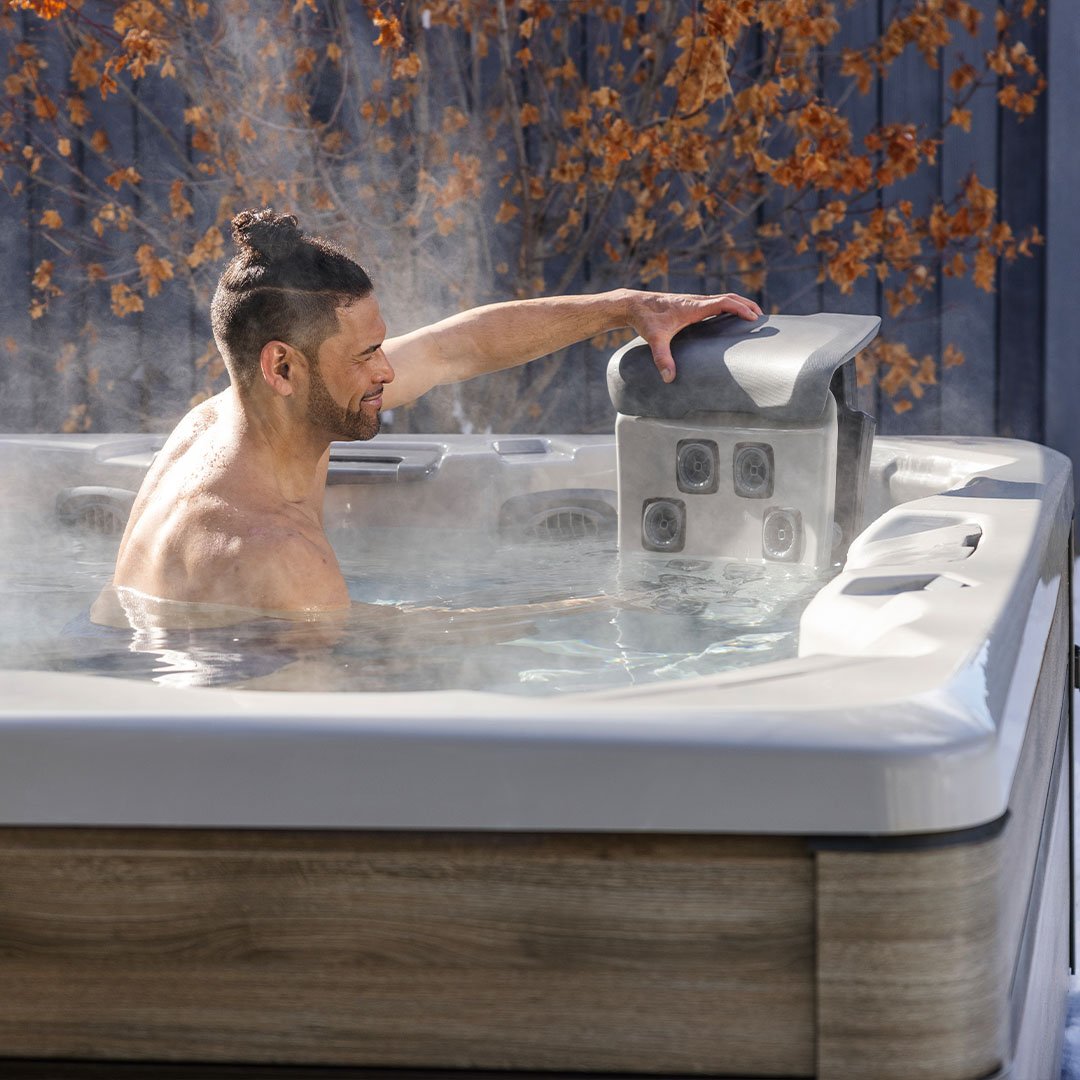A Guide to Winter Pool Covers: Protecting Your Pool in Cold Weather
As the leaves begin to fall and temperatures drop, it's time to shift gears from summer splashes to winter preparation. At Watson's, we know that protecting your swimming pool during the off-season is essential for both your investment and your peace of mind. That's why we've created this guide to winter pool covers. From selecting the right type to proper installation and maintenance, we'll walk you through everything you need to know. Our goal is to help you protect your pool during the cold months, ensuring it's in prime condition when swim season rolls around again.
What Are Winter Pool Covers and Why Are They Important?
Winter pool covers are specially designed protective barriers that shield your pool from the harsh elements during the off-season. These covers serve multiple purposes:
- Prevent debris from entering the pool
- Maintain water quality
- Enhance safety for children and pets
- Protect pool surfaces from potential damage
Winter covers are typically made from durable materials such as reinforced polyethylene, polypropylene, or vinyl. These materials are chosen for their strength, UV resistance, and ability to withstand cold temperatures. The choice between these materials depends on your specific needs and local climate conditions.
Summer Covers vs. Winter Covers: What's the Difference?
While it might be tempting to use a single cover year-round, summer and winter pool covers serve distinct purposes. A summer cover, like a solar cover, is designed to retain heat, reduce evaporation, and potentially harness the sun's energy to warm your pool. These lightweight covers are perfect for the swim season but lack the robustness needed for harsh winter conditions.
On the other hand, a winter pool cover is built to be a fortress against the elements. These heavy-duty covers are engineered to withstand snow, ice, and debris while keeping your winterized pool secure. Unlike their summer counterparts, winter covers are designed to envelop your entire pool, creating a protective barrier that shields your pool's structure and water quality during the off-season.
The Benefits of Using Winter Pool Covers
Investing in a high-quality winter pool cover offers numerous advantages that extend beyond basic protection, including:
- Protection from Debris: Winter pool covers act as a shield against falling leaves, twigs, and other debris that can accumulate during the off-season. This protection significantly reduces the time and effort required for spring cleaning, allowing you to open your pool faster when warmer weather returns.
- Safety for Children and Pets: Safety should always be a top priority, especially during winter when the pool area may be less supervised. A properly installed winter cover creates a barrier that helps prevent accidental falls into the pool, providing peace of mind for families with young children or pets.
- Reduced Maintenance in Spring: By keeping your pool clean and protected throughout the winter, you'll face less maintenance work when it's time to reopen. This means less time scrubbing, vacuuming, and balancing chemicals, and more time enjoying your pool when swim season arrives!
- Energy Conservation: For those who heat their pools, a winter cover helps retain heat and reduce energy costs. Even if you're not heating your pool during winter, the cover helps maintain a more stable water temperature, which can be beneficial when reopening.
Choosing the Right Winter Pool Cover
Selecting the perfect winter cover for your pool involves considering several factors. Let's break down the key elements to help you make an informed decision:
Factors to Consider
- Pool size and shape
- Local climate and weather patterns
- Budget constraints
- Desired level of maintenance
In-Ground vs. Above-Ground Pool Covers
In-ground pools typically require covers with a larger overlap to accommodate varying shapes and sizes. Above-ground pools often use covers that attach directly to the pool's structure, providing a snug fit.
Different Types of Covers for Various Pool Designs
- Solid Covers: Offer complete protection against debris and sunlight, but require pumping off accumulated water.
- Mesh Covers: Allow excess water to pass through while catching debris, reducing the need for pumping.
- Hybrid Covers: Combine features of both solid and mesh covers for optimal protection.
- Solid Safety Covers: Provide the highest level of protection and are strong enough to support the weight of a person or pet.
When choosing your cover, consider your pool's specific needs and your local climate. For example, areas with heavy snowfall might benefit from a mesh cover to prevent water accumulation, while regions with milder winters might prefer a solid cover for maximum debris protection.
When to Install and Remove Winter Pool Covers
Timing is vital when it comes to winterizing your pool. Here's a general guide based on climate regions:
- Northern Climates: Install covers in late September to early October, remove in late April to early May
- Southern Climates: Install covers in late October to early November, remove in late March to early April
- Temperate Climates: Install covers when temperatures consistently drop below 65°F; remove when spring temperatures stabilize
Remember, these are guidelines and may vary based on your specific location and weather patterns. It's always better to install your cover a bit early rather than risk an unexpected cold snap damaging your pool.

Proper Installation Techniques
Correct installation is necessary for your winter pool cover to work effectively. Follow these steps for a successful installation:
- Clean and balance your pool water
- Lower the water level as recommended for your cover type
- Remove ladders and other accessories
- Measure and center the cover over your pool
- Secure the cover using the provided hardware or water bags
- Ensure the cover is taut to prevent sagging
Common Mistakes to Avoid
- Using improper anchoring methods
- Failing to remove excess water or debris during the winter
- Neglecting to check the cover regularly for damage or wear
A properly installed cover not only protects your pool but also extends the life of the cover itself.
Maintenance of Winter Pool Covers
Regular care and maintenance ensure your entire pool cover remains effective throughout the season. Here are some essential care tips to protect your investment year-round:
Cleaning and Care Tips
- Remove leaves and debris regularly to prevent staining and damage
- Keep the cover taut to prevent water pooling
- Inspect for tears or wear and repair promptly
- Clean the cover with a mild soap solution before storage
- For spring opening, use a specialized cleaner, like Swimway Tile & Vinyl Cleaner, to remove winter grime
- Always dry the cover thoroughly before folding and storing it off the ground
Dealing with Snow and Ice Accumulation
- Use a pool cover pump to remove standing water exceeding four inches
- Gently remove heavy snow loads to prevent cover stress
- Avoid using sharp tools that could damage the cover
- Consider a mesh cover in areas prone to heavy snow
Additional Protection Tips
- Pad sharp edges and decking before winter installation
- Maintain chlorine levels below 3.0 ppm when closing the pool
- Never use water bottles or cement blocks as weights - it voids warranties
- Address small tears promptly with patching to maintain cover effectiveness
Proper maintenance protects your pool and extends the life of your cover, saving you money in the long run. If you experience any issues, such as seam separation, don't hesitate to contact Watson's customer service team for assistance.
Complementary Winterizing Steps
While a winter cover is essential, it's just one part of a comprehensive winterizing approach. Consider these additional tips:
Essential Chemicals for Winterizing
- Adjust pH levels to between 7.2 and 7.6
- Shock the pool to eliminate contaminants
- Add algaecide to prevent algae growth
- Use a winter enzyme treatment to break down non-living organic contaminants
Draining Water to Appropriate Levels
- For above-ground pools, drain water 4-6 inches below the skimmer
- For in-ground pools, drain water 4-6 inches below the tile line
Protecting Plumbing and Equipment
- Drain and clean the filter, pump, and heater
- Remove and store removable equipment
- Blow out plumbing lines and plug them to prevent freezing
Taking a comprehensive approach to winterizing means your pool is well-protected and ready for a quick and easy opening when spring arrives! Thankfully, Watson's has all the high-quality products and expert advice you need to winterize your pool effectively.
Watson's: Your Trusted Partner for Pool Winterization
At Watson's, we take pride in being your go-to resource for all things pool and spa-related, especially when it comes to winterization. Here's why pool owners consistently choose us for their winterizing needs:
- Curated Selection: We offer a carefully chosen range of high-quality winter pool covers and winterizing products from industry-leading brands, ensuring you find the perfect fit for your specific pool.
- Expert Advice: Our knowledgeable staff provides personalized recommendations based on your specific pool type, climate, and needs.
- Competitive Pricing: We offer our lowest price guarantee on all our products, ensuring you get the best value for your investment.
- One-Stop Winterizing Solution: From covers to chemicals, we provide all the essential tools and products you need for a comprehensive pool winterization process.
- Ongoing Support: Our commitment to your satisfaction extends beyond your purchase. We're here to support you throughout the winterizing process and beyond!
Ready to prepare your pool for winter? Browse our extensive collection of pool covers and winterizing equipment online, or visit your nearest Watson's location to get hands-on with our products. Our team is ready to help you find everything you need to keep your pool protected all winter long.
FAQs
How long do winter pool covers typically last?
With proper care and maintenance, a high-quality winter pool cover can last 5-7 years. Mesh covers tend to have a longer lifespan than solid covers due to their ability to drain water and snow loads.
Can I walk on my winter pool cover?
While safety covers are designed to support weight in case of an emergency, they are not intended for regular foot traffic. Standard winter covers are not designed to bear any weight at all. Walking on any type of pool cover can cause damage to the cover and pose significant safety risks. Always prioritize safety and avoid walking on your pool cover, regardless of its type.
Topics: Pool - Above Ground Pools, Pool - Semi-inground Pools, Pool - Supplies











